|
You had to be there. And we’re grateful to our partners, school colleagues and everyone who was with us for the 2022 SWIFT Summer Conference on the last Thursday of June, both in person at Exeter Racecourse and online. As SWIFT Director Martin Smith said in his opening welcome; as well as listening to our high calibre speakers, SWIFT wished the conference to be an opportunity for colleagues to network; as well as boost their professional development “to help make a difference to what you do in connecting and sharing new ideas.” Next up, SWIFT Strategic Leader, Roger Pope CBE led his welcome with historical highness – equipped to do so having started his own educational journey in 1979, only to be observed teaching an astonishing 40 years later! With his time-honoured thinky presentation Roger harked back to 1976 when Prime Minister Callaghan inaugurated the great educational debate about improving standards in a school system run by Local Education Authorities; followed over a decade later in 1988 by Kenneth Baker’s Education Reform Act bringing autonomy for schools with local management, Grant Maintained Schools and City Technology Colleges; hand-in-hand with greater accountability through market driven schools, a National Curriculum, all to be measured by League Tables and Ofsted. Here we are, a few more decades on with the 2022 White Paper that decrees: “The quality of teaching is the single most important in-school factor in improving outcomes for children, especially for those from disadvantaged backgrounds…The evidence is clear that high-quality professional development can lead to improved children’s attainment.” Roger concluded on behalf of Colyton and Kingsbridge, two of the Department for Education’s national Teaching School Hubs working together as South West Institute for Teaching: “Our vision is to create world-class opportunities for staff to learn, develop and connect so that all children, especially the disadvantaged, achieve the best educational outcomes. Let’s do it together.” Without further ado, to the first keynote speaker. Diana Osagie, Founder and CEO of The Academy of Women's Leadership and author of “Courageous Leadership.” Diana presented (or rather proclaimed) on “How to be an Effective Resilient Leader in 5 Steps” with a call to cake in her empowering preamble for school leaders to “grow your metaphorical backside… as you’ll need a big one to sit comfortably, steady and not be easily rocked as the buck stops with the Headteacher.” Hard-nosed, hard-skinned, hard-everything! A tour de force thanks to her 16 years’ experience leading secondary education, including six years as a successful Headteacher in a London secondary school, Diana spoke from her experience at the cutting edge of education and school improvement. For her, it wasn’t the students who gave her issues, it was the staff! Diana learned from a great Deputy who was always needlessly checking in with her: “Just do It!” and she held a Head Surgery (note the catchy title) on Tuesdays from 1530 to 1730 for six years. Ten-minute slots. For anyone about anything. She never missed it. And that was as a teaching Headteacher (Physics, in case you were wondering – which has a certain pertinence having listened to her). Above all, when tackling those “wicked, knotty problems,” remember: “clarity is your best friend and assumption is the nemesis of leadership.” Or else, you risk the consequence of the issue becoming greater than the problem itself. So, to the to the DIANA OSAGIE WAY and here’s some of her resilience top tips: Understand the Steps of Growth when Guiding your Staff 1. I know 2. I understand 3. I implement If your staff are not willing, you’ll always be fighting “ad hoc fires that will erode your resilience and bouncebackability” (yes, it’s a word). So, follow those three steps… Deal with the Elephant in the Room Diana told the story of a church mother at her Pentecostal church who was the church announcer, but had an unfortunate knack for saying awkward things and the church leadership didn’t know how to handle her: “gaff upon gaff upon gaff…” However, she was influential. Diana was tasked with sorting this particular elephant and told her straight and yes…she assumed the role of church announcer! Sort of similarly, Diana didn’t like her Head of English (her best ever!) despite his outstanding exam results track record: 80% Grades A – C at GCSE in a school with language issues. But she learned how to deal with his sarcastic snidey comments. Find your elephants. MIC Maintain Improve Rid You’ll soon see the trends and patterns. Deal with the fires that matter and know that some things that you do are “rubbish.” Because you thought it, planned it, you might think that it should work. Wrong! That is only your opinion. It’s not a fact or “just because you have a title.” Admit it when you get it wrong. Don’t Attempt Leadership on your Own It’s foolish and dangerous. You’ll operate more effectively with a true peer – as do famous footballers, actors, singers who all submit to their coach, and director. Their veteran seasoned leader. Think how all the parts work together. Keep Your Advocate (in the corner) Someone who wants you to do well. “It’s your responsibility to secure the level of support that matches your level of authority.” Diana ended with a second rousing Call to Action: “Sort it out leaders!” - and buy her book! From resilience and courageous leadership to Ofsted with the next keynote speakers, James McNeillie HMI and Regional Director, Stephen Lee, presenting Ofsted updates, findings and questions. In his role as HMI, James shared how inspecting schools in England is “a privilege” and looking ahead to the next five years the focus will be on inspections to raise standards and the best start in life for Early Years and Foundation Stage, and testing schools’ safeguarding policies to keep children safe in school and contribute to their positive experience. Fundamentally, schools are required to provide a broad and balanced curriculum in the shape of the National Curriculum, and the Multi Academy Trusts’ rationale for their alternative curriculum will be tested during inspections. So, curriculum deep dives might be what schools are doing for those children who have missed out on reading (during the Covid-19 lockdowns) and what is their long-term plan? Or for disadvantaged and disabled children who are receiving extra help, but which means they are not getting full access to the curriculum. School Leadership team are invited by Ofsted to share their strengths and issues for development and to explain any adaptations. But, an important Ofsted caveat: today’s talk was not an Ofsted checklist! Rather, some suggested discussion points with leaders about their school’s implementation. And interestingly, James warned against SLTs wasting money on “Mocksted” consultants. One of the best ways to get up to Ofsted speed in person is to listen directly to talks from Ofsted inspectors – such as this SWIFT Summer Conference - and of very real reassurance for school leaders, James recognised that Ofsted are aware of the impact of Covid that has been incorporated in the next Ofsted Framework. So, to other updates, Ofsted will be consulting on a new framework from January 2023 and will be inviting leaders to give their views and thoughts. MAT summary evaluations continue to take place (not inspections) and will involve meetings between Ofsted and SLT. Stephen Lee reported on Section 5 inspections by region in which the most common judgement is Good and very pleasing for Ofsted and schools is that post-pandemic more schools have progressed from RI to Good. Perhaps of particular relevance and close to home consideration for some of our conference delegates the South West is below the national average compared to the rest of England, and some explaining factors might include, for example, the challenges of demographics of coastal areas. Around 23,000 schools are inspected in a normal year and are considered by Ofsted to be “a force for improvement…” that provides “an unrivalled insight as an organisation into effective schools.” SEND is clearly a key focus. Stephen considered high-quality provision for pupils with SEND and that adaptations can be made so that children with SEND are able to follow the same curriculum in the school or else the risk is a narrowed curriculum for them. Too often there is more focus on wrap around care than academic support. Reading is another key focus, with 40% of disadvantaged children not reading as well as their school leaving age along with 20% of other children. A love of reading feeds on itself: “Reading is the gateway to the curriculum” and sadly, children face “a lifelong disadvantage if they can’t read.” School leaders will be able to read the Ofsted Annual Report for more insights. 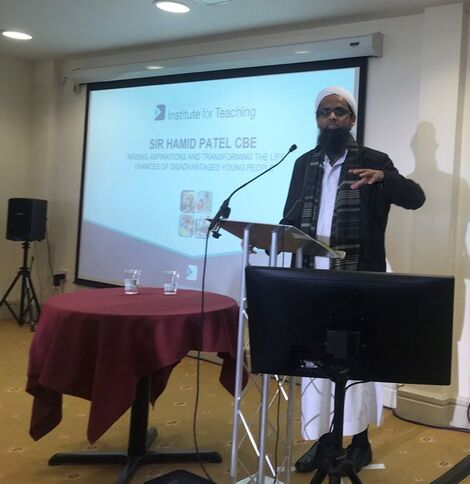 As Education South West CEO, Matthew Shanks noted in his introduction to the final keynote, if some parts of the country might conceive of a sleepy Devon with no issues, this was immediately debunked by, Sir Hamid Patel CBE, Chief Executive of Star Academies (who had been driven for five hours to Exeter from Blackburn) in his talk on Raising Aspirations and Transforming the Life Chances of Disadvantaged Young People: “Disadvantaged children are everywhere… The label should not make a difference. Successful schools create cultures that are homogenous, unified and cohesive and an equal part.” One of the essentials is to undertake interventions and to do the same as you do for everyone, but remove the barriers. This helps to close the gap and provide equal access for Pupil Premium children and young people. An impassioned Sir Hamid told how his Trust had bought school uniform for their disadvantaged children and going even further had organised for the uniform to be collected, washed and ironed and returned to those most in need. And times are getting harder. For one of their Bolton Trust school, a school trip to London was considerably subsidised. Some of the children had never been on a train! Their parents were invited to pay £5 a month and the school subsidised the remaining 75% of the trip costs. Making life-changing experiences a reality. “Set them up for success. Many are set up for failure.” School leaders were encouraged to triangulate when making judgements. Don’t compromise on quality. Work harder, smarter to make it count. Seek lots of small donations, rather than big donations to finance projects and make them happen. Decide five/ten (your number!) character-defining opportunities that you want the children and young people to experience: be it poetry, theatre, mountaineering, and that will have a positive impact on their confidence, self-esteem, resilience and cultural capital and link to the core curriculum. Don’t go to Ofsted for inspiration. They are the regulator for QA. Have the confidence to share ideas and bring to life real innovation and collaboration to transform outcomes for young people regardless of their backgrounds. Hold Careers Day with positive role models and a speakers’ programme (SWIFT knows about that!). Avoid “one-year wonders” as flash-in-the-pan SLT ideas. Do less, but consistently and regularly, year in year out. And do it well. Think about sustainability, scalability, and onwards delivery so that the change becomes part of your school culture. The Marginal Gains motto! Continuous improvement in all aspects. There are small gains to be made – everywhere! Think long-term about your school’s three, four, five-year plan. Sir Hamid told of James Bond "Jim" Stockdale, a US Navy Vice Admiral and Aviator and prisoner of war for over seven years in the Vietnam War and awarded the Medal of Honour. His optimism wasn’t like some of his fellow prisoners who were hoping to be released in unrealistic short timeframes. Stockdale “confronted the brutal reality on the ground” and was optimistic over a long time and that’s why he survived. Get your staff to commit: “Be a bit better than last year.” Maybe work with your RI teacher to help them get better, rather than get rid and start again. Celebrate what staff get right, not wrong. Underperforming, broken schools tend to be broken across the whole school. Build on an RI school’s strength – find any “nugget” to re-build and create an action plan for improvement. Seek to improve – even the small things. For example, a Sports Day letter to parents. Don’t simply use a repeat letter and only change the date and resend. Improve it. Format it well. QA it! Teachers always tell children to present their work well. Think about weekly briefing notes. Use as an opportunity to plan the week well. Workload issues are often last-minute changes that create unnecessary stress for staff. Be mindful of those event dates that are known in advance, for example, the annual World Book Day… plan in advance! Disadvantaged children have lots of challenges, so overcommunicate to support them and consider how you serve your evidence base. “The best schools are thinking schools…and all schools should be thinking schools.” It was both humbling and heartening to listen to Sir Hamid (not least a northern girl) and we thank him for making the journey to us and for sharing some of his tried and tested tips to raise aspirations of our disadvantaged young people wherever you may be. A memorably enriching part of the conference. As part of the well-rounded conference experience, delegates also enjoyed the opportunity to attend the following morning and afternoon workshops: A Year of Change in the EYFS: Impact and Opportunities Phil Armstrong | Head of Regional Development for the South of England, Early Excellence Effective Teacher Professional Development Sam Sims | Lecturer, Centre for Education Policy and Equalising Opportunities (CEPEO) at UCL Institute of Education How will our children feel about diversity if they live in an area with none? Ruhaina Alford | Executive Headteacher, The Carey Federation in Devon School Improvement: The Strategy and The People Sufian Sadiq | Director of Teaching School, Chiltern Learning Trust Lorraine Hughes | Director of Education, Chiltern Learning Trust Interrogating the English Curriculum John Tomsett | Former Headteacher of Huntington School in York and “This Much I Know” blogger Key Implementation Practices for School Improvement Jon Eaton | Director, Kingsbridge Research School and Research Lead, Education South West The Golden Thread' - three years on from the recruitment and retention strategy, the reality of implementation Graihagh Crawshaw | Director of School Leadership Programmes, Teach First Faye Craster | Director of Teacher Development, Teach First What really works for disadvantaged children? Jean Gross CBE | Popular speaker and writer and national expert on tackling disadvantage. You can read more about the workshop leads in the Conference Booklet at the end of this post. SWIFT Deputy Director for the Colyton TSH Chris Harris (on behalf of Colyton Grammar School’s Headteacher, Tim Harris) thanked all the presenters and workshop leaders for their motivating and meaningful talks and to all the schools and partners who have worked with SWIFT this year. With another nod to the White Paper, Chris reminded us all that it’s quality of teaching that is the single way to improve standards. 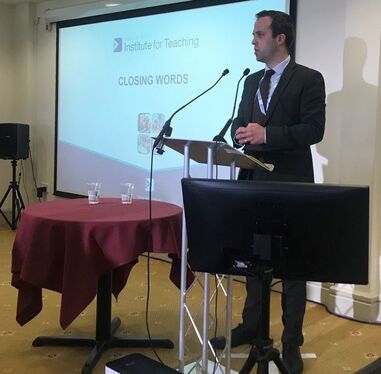 “Together, we’re better than the sum of our parts” - and like Chris’s three-year-old son, when asked what did he do at pre-school; today, we can also reply, “we did some learning.” Lots of learning. Martin Smith continued the thank yous and commended the speakers for their “rich eclectic leadership experience” and thanked SWIFT delivery partners, Cornerstone English Hub and Science Learning Partnership for being with us. Thank you to Martin Drew and Robin Scott of Exeter Consortium Schools’ Alliance for their excellent event management and for making the conference such a positive experience and to Alex Wren from Bitpod for the slick and seamless technical support. 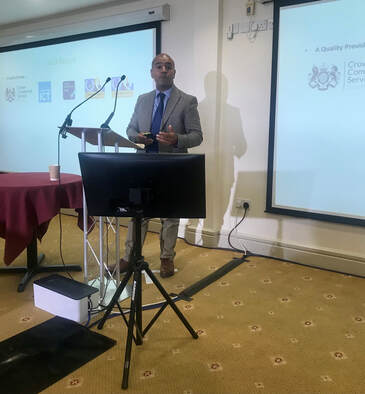 A big and important thank you to our delegates for attending the conference today. SWIFT was honoured and humbled to welcome you. Your time was not taken for granted. A grateful thank you to the SWIFT sponsors whose support enabled SWIFT to provide the conference at a reasonable cost. Thank you to Computeam and Arbor and to Account Director, Shamoon Dean for presenting on how Computeam can help to improving outcomes for schools through technology and the four P’s: People, Passion, Purpose and Proud. Thank you to award-winning immersive learning platform Lyfta for their powerful, interactive and curriculum-aligned lessons that help to bring learning to life with a 360 degree “window into the lives of people;” and whose vision is that children will feel like they have been to every country in the world and understand we are all interconnected. Thank you to Adrian Henley from Towergate Insurance who works with schools in the necessary world of insurance and tailors policies for schools - be it for cyber insurance, travel, staff sickness, contracts and engineering.  Finally, thank you to SW Conferences for organising the conference market-place and all the stall-holders for sharing their dynamic and exciting products: Applicaa Ltd Babcock LDP Computeam – Sponsor Cornerstone English Hub Courageous Leadership Create Development Ltd dbdplay Ltd Fun & Active Playgrounds Goosemoor Educatering InVentry Lighthouse Media Lyfta Mighty Writer Milsted Langdon Nayamba School SchoolPro School Spider Science Learning Partnership Teaching Personnel TME South West Ltd Towergate Insurance Wolferstans LLP You can read more in our SWIFT 2022 Summer Conference booklet. Report by Jude Owens, PA to the SWIFT Executive Team
0 Comments
Your comment will be posted after it is approved.
Leave a Reply. |
SWIFT News
|
SPONSORED BY
Join us, be a part of our SWIFT community |
© COPYRIGHT 2022 SOUTH WEST INSTITUTE FOR TEACHING SWIFT. ALL RIGHTS RESERVED | Website by brightblueC
VIEW OUR PRIVACY NOTICES | VIEW OUR COURSE T&CS
VIEW OUR PRIVACY NOTICES | VIEW OUR COURSE T&CS

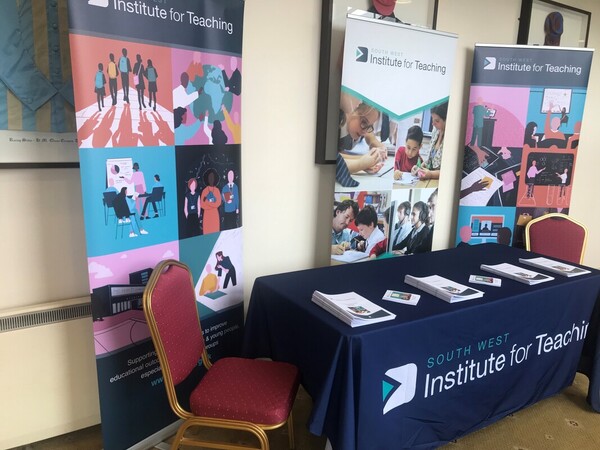
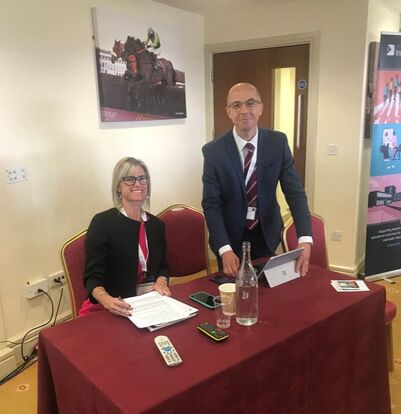
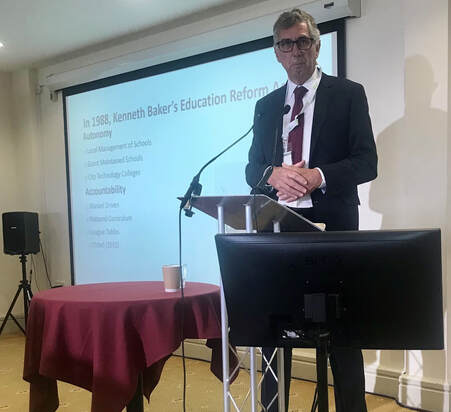
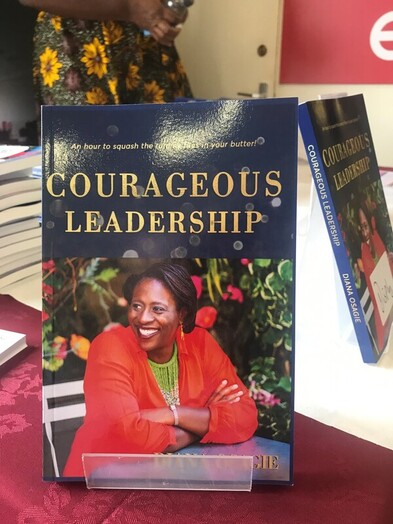
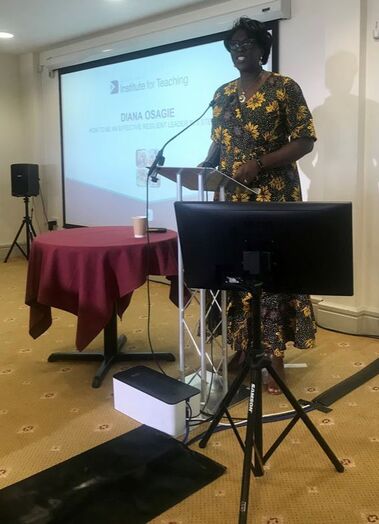
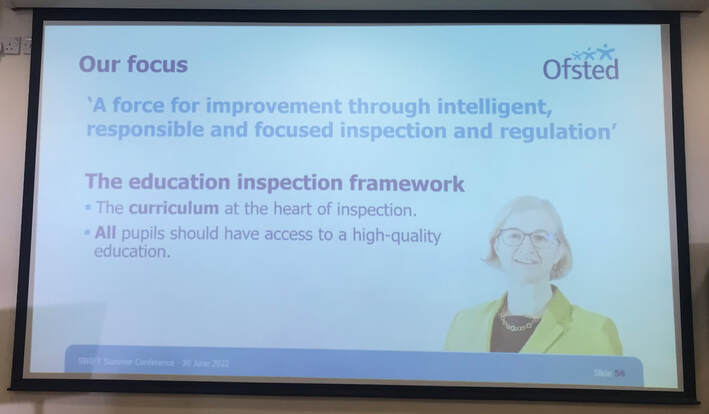
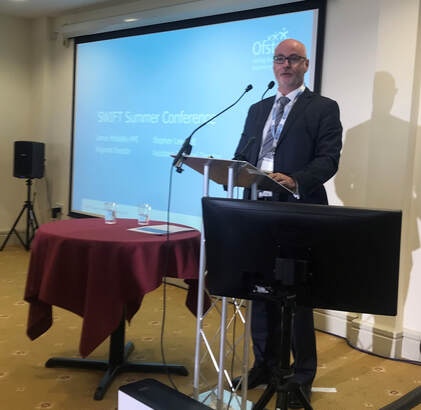
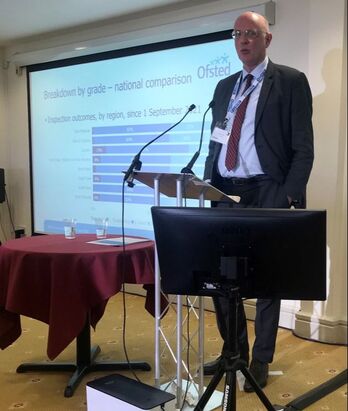
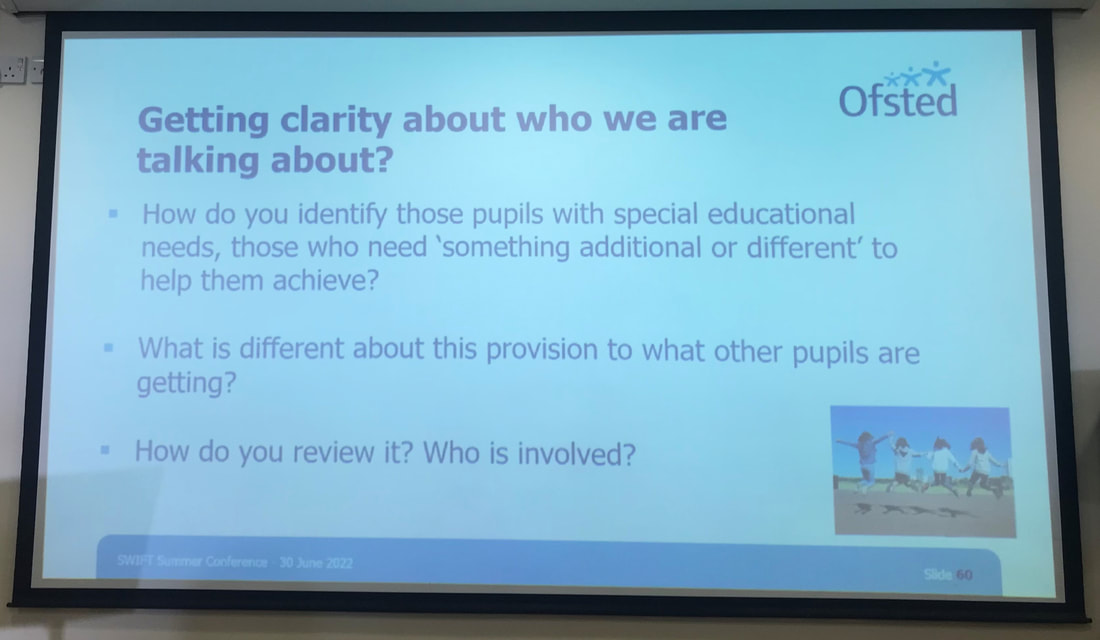
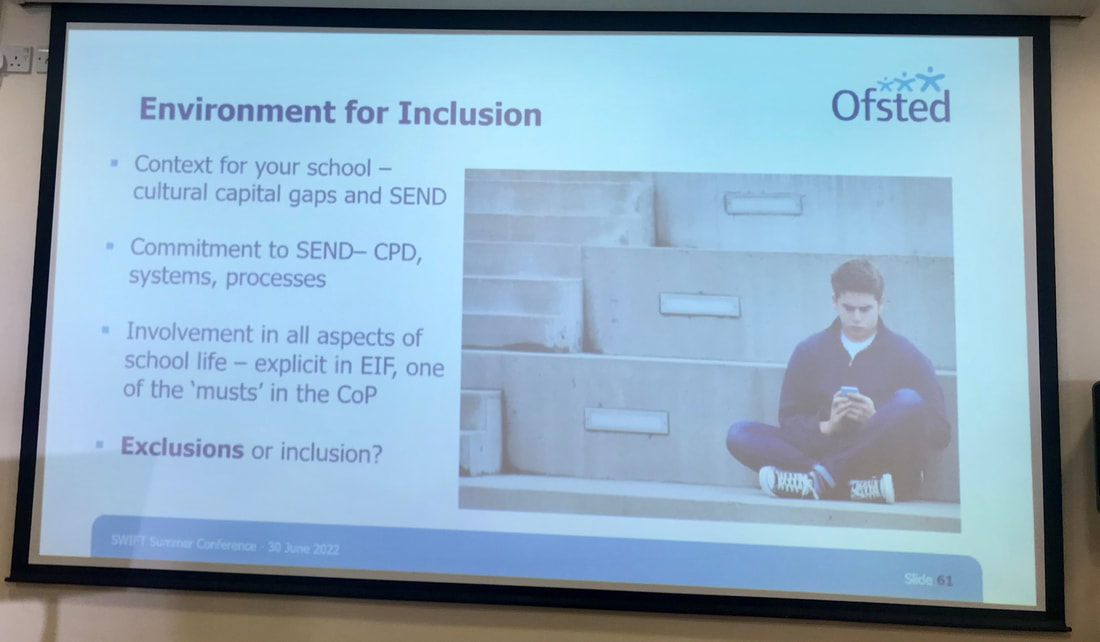
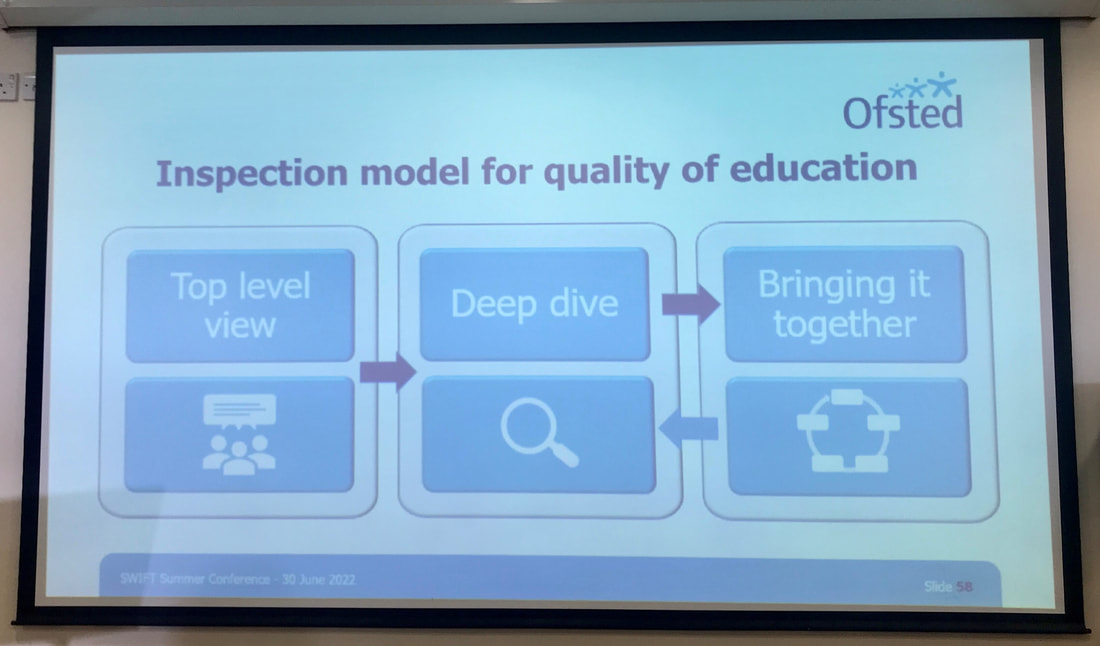
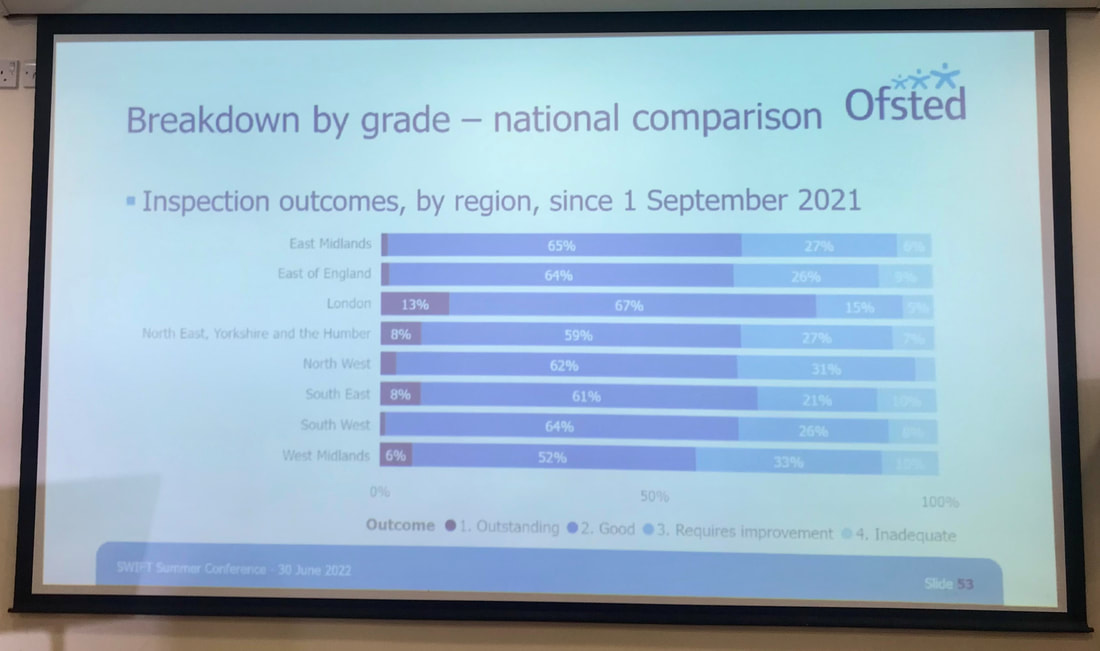
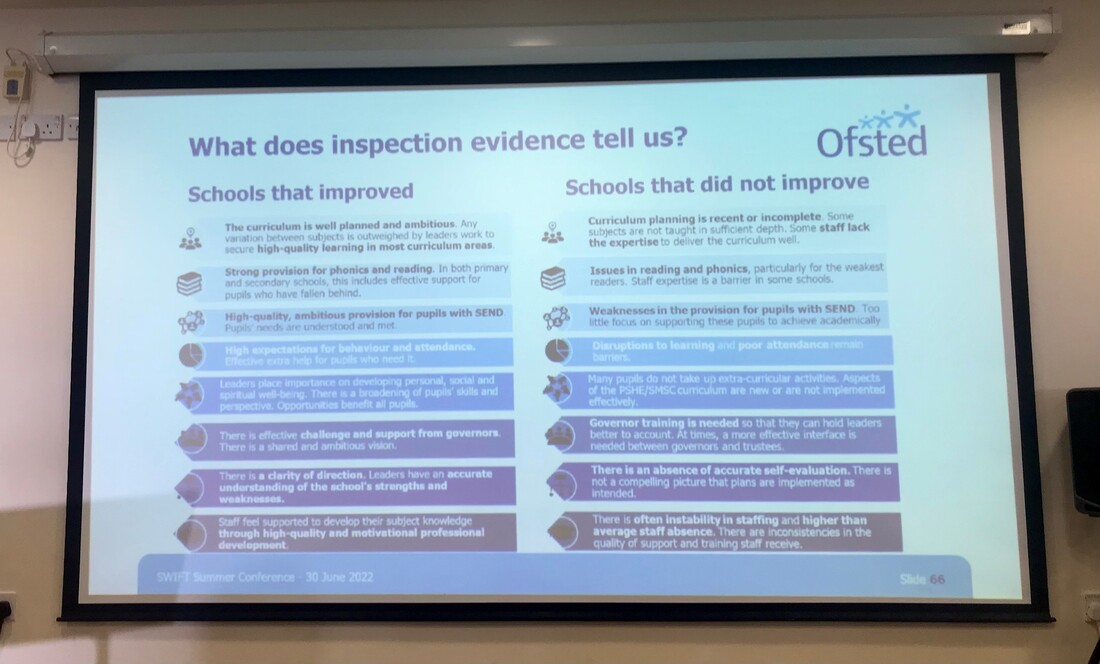
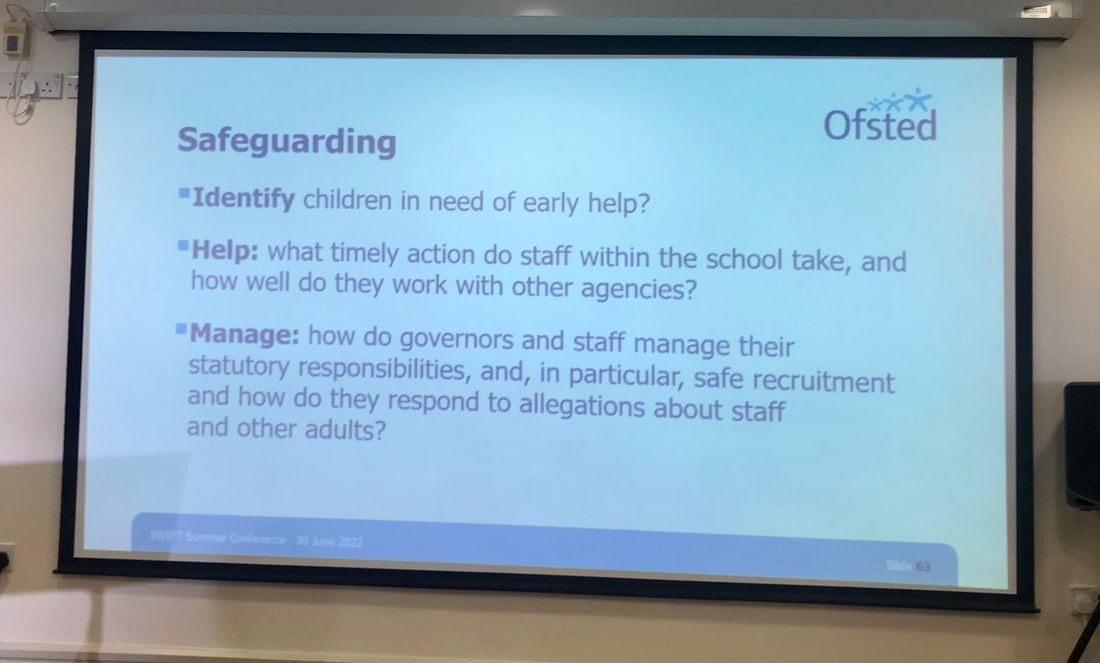
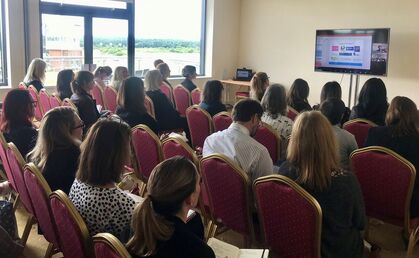
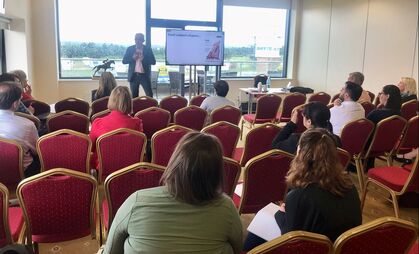
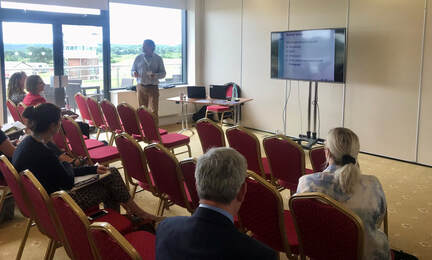
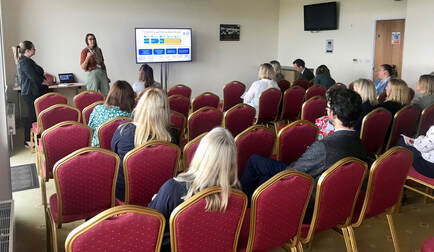
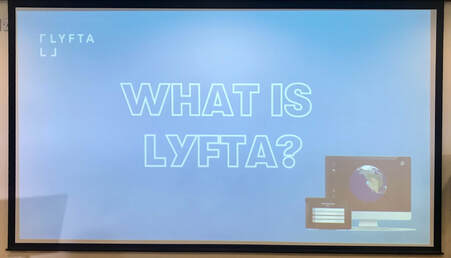
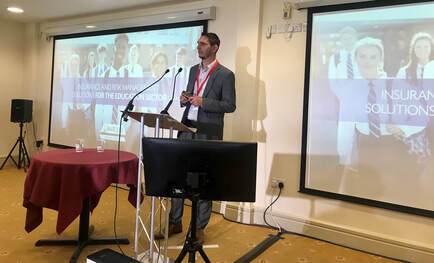



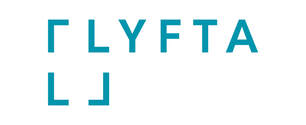


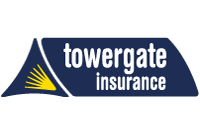


 RSS Feed
RSS Feed





